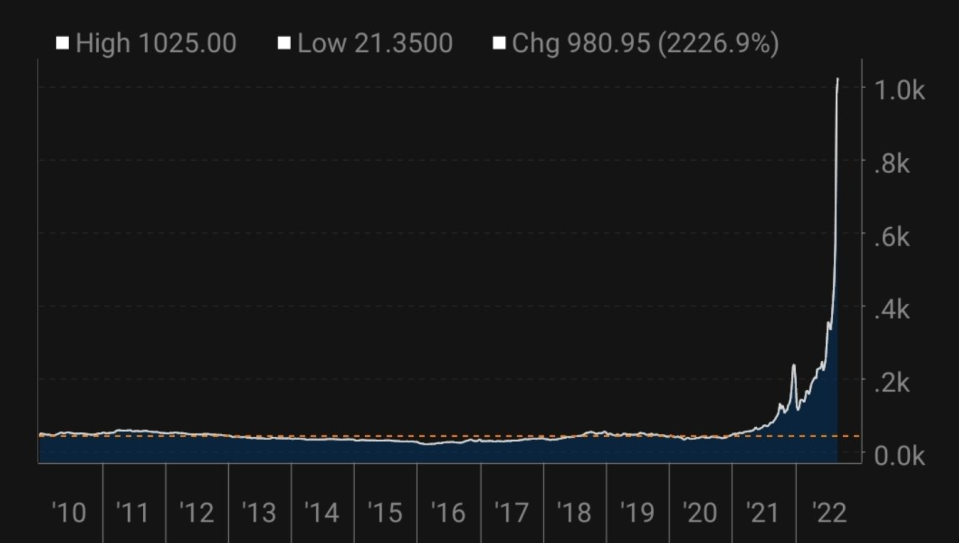Europe faces winters of discontent without gas price cuts, warns Belgium

The European Union (EU) could suffer a decade of painful winters if nothing is done to reduce natural gas prices, warned Belgium’s energy minister.
Tinne Van der Straeten wrote on Twitter that gas prices in Europe needed to be frozen urgently, and that the link between gas and electricity prices needed to be reformed to prevent future crises.
She said: “The next five to 10 winters will be terrible if we don’t do anything. We must act at source, at European level, and work to freeze gas prices.”
Calls are mounting across the bloc for an EU-wide cap on the price of gas and its decoupling from the price of electricity.
Austria’s Chancellor Karl Nehammer said: “We have to stop this madness that is happening right now on energy markets, We cannot let [Russian President Vladimir] Putin determine the European electricity price every day.”
This comes as German power prices for next year broke through €1,000 benchmark for the first time last week, with prices surging 25 per cent across both Germany and France – the EU’s two biggest economies.
German power for 2023 rose as much as 6.6 per cent to trade at €1,050 per megawatt-hour while the equivalent French contract soared above €1,000.
Prices have spiked amid a further Russian squeeze on gas supplies, with key pipeline Nord Stream 1 now operating at just 20 per cent capacity. It is also scheduled for maintenance later this month, raising the prospect of further cuts or a halt in supplies altogether.
EU states have been struggling with huge energy price hikes since key gas supplier Russia invaded Ukraine in February.
The Kremlin has retaliated to Western sanctions targeting seaborne oil shipments and coal imports by blocking gas into over a dozen EU countries.
This has exacerbated reduced energy production in Norway amid droughts, and France’s slump in nuclear power generation.
Germany was the largest importer of Russian gas in 2020, and has been racing to bolster its gas reserves before winter despite Russia cutting deliveries.

Its aim is to fill its gas capacity to 85 per cent by October, having reached its target of 75 per cent storage by September.
It has implemented energy-saving measures to do so, with cities such as Hanover, Berlin and Munich cutting energy usage across public buildings ahead of winter.
EU member states have also pledged voluntary gas cuts of 15 per cent until next Spring to ease the pressure on supplies.